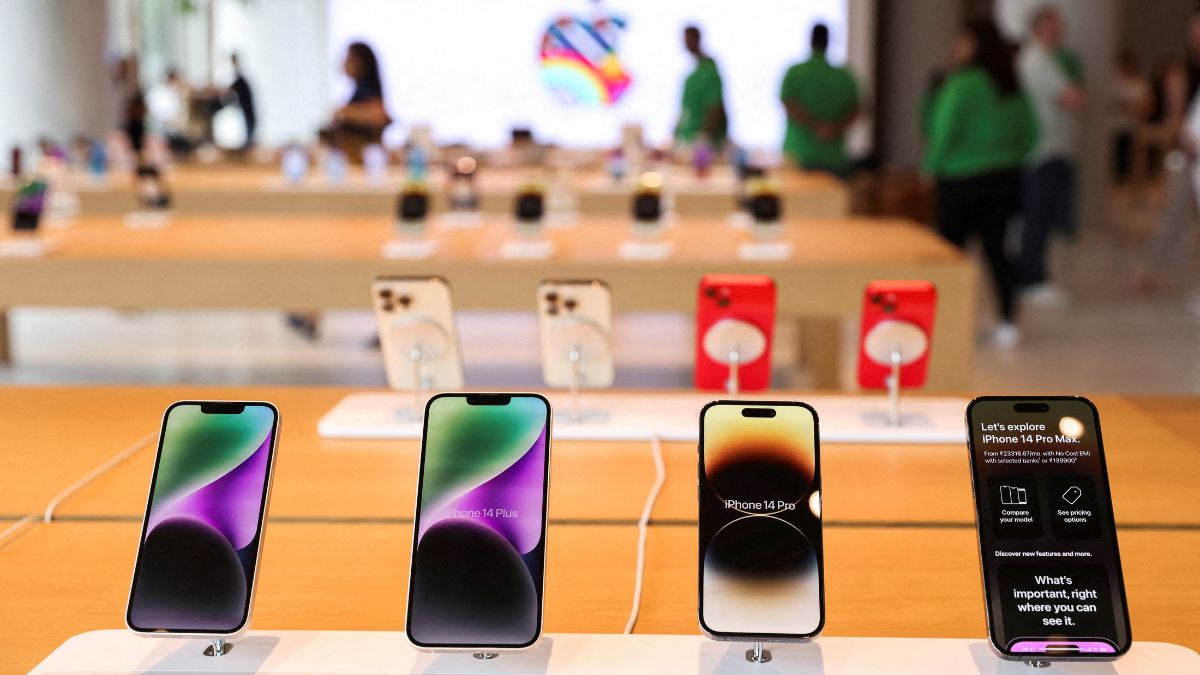Tech giant Apple has quietly chartered a series of cargo flights from India to the United States, ferrying as many as 1.5 million iPhones in a high-stakes logistical manoeuvre to beat a fresh wave of tariffs imposed by US president Donald Trump on imports from China, Reuters cited multiple sources as saying.
The unprecedented airlift, involving around 600 tonnes of devices, showed Apple’s behind-the-scenes scramble to shield its lucrative US market from the financial fallout of Trump’s sweeping tariff regime, which has pushed import duties on Chinese electronics to a staggering 125 per cent.
By comparison, iPhone imports from India are currently subject to a 26 per cent tariff, which remains temporarily suspended following Trump’s decision this week to pause most non-China tariffs for 90 days.
The former president has consistently ratcheted up tariffs on Chinese goods in his bid to punish Beijing over trade practices— a strategy that has sent shockwaves through global supply chains.
“Apple wanted to beat the tariff,” one source familiar with the planning said.
‘Green corridor’ for Apple at Chennai airport
In its rush to get iPhones into the US before new tariffs kicked in, Apple successfully lobbied Indian authorities to fast-track customs clearance at Chennai airport in Tamil Nadu— one of its key manufacturing hubs. The process, which once took more than a day, was cut to just six hours under what insiders described as a “green corridor” arrangement.
The streamlined clearance model mimics Apple’s logistics playbook in parts of China, where the company has long relied on dedicated lanes to move goods swiftly through customs. Six cargo jets— each with a 100-tonne capacity— have reportedly flown out of Chennai since March, one of them just this week as the tariffs came into effect.
Calculations based on packaging weights suggest the total haul involved roughly 1.5 million iPhones, mostly iPhone 14 models, along with accessories.
Sunday shifts and tariff pressure
Apple has been trying to reduce its dependence on China, while ramping up manufacturing in India. The company has pushed for a 20 per cent surge in iPhone output in India in recent months, achieved by adding more workers and extending operations at Foxconn’s largest Indian plant to include Sundays— normally a non-working day.
Two sources confirmed that the Foxconn facility in Chennai, which produced 20 million iPhones last year, is now running seven days a week to meet the demand.
Impact Shorts
More ShortsCommercial customs data shows Foxconn shipments from India to the US soared to $770 million in January and $643 million in February— a dramatic increase from the monthly range of $110 million to $331 million seen in the prior four months. Most of those shipments were offloaded at airports in Chicago, Los Angeles, New York, and San Francisco.
A gamble that paid off— for now
The urgency behind Apple’s airlift is rooted in simple arithmetic. At a 125% tariff rate, the price of a high-end iPhone 16 Pro Max in the US would surge from $1,599 to roughly $2,300, according to projections by Rosenblatt Securities.
Analysts have warned such increases could curb demand and damage Apple’s US market share.
Trump’s decision to pause non-China tariffs for 90 days buys Apple precious time, but the threat of long-term disruption remains. India now accounts for an estimated 20 per cent of all iPhone imports into the US, according to Counterpoint Research— a figure that is likely to rise as the tech giant builds new factories with suppliers Foxconn and Tata, both of which are expanding operations across the country.
With inputs from Reuters
)